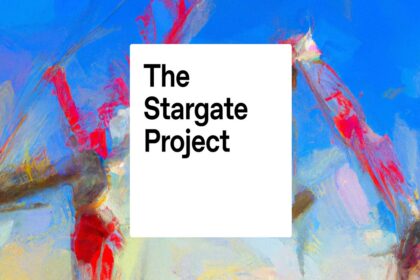International pharmaceutical company Servier has expanded its partnership with Google Cloud to enhance its research and development (R&D) capabilities. The extended five-year agreement will see Servier leverage Google Cloud’s advanced AI technologies to transform its pharmaceutical innovation processes. This collaboration aims to speed up the development of new drugs and therapies, reducing time to market while ensuring more personalized treatments.
Unlocking New Potential with Generative AI
Under the expanded agreement, Servier has already identified around 60 generative AI use cases to accelerate various stages of drug development. These include identifying new therapeutic targets, optimizing drug formulas, screening for potential treatments, and analyzing the biological evolution of diseases. By harnessing AI in these key areas, Servier aims to improve the efficiency and effectiveness of its R&D processes.
Claude Bertrand, Executive Vice President of R&D and Chief Scientific Officer at Servier, emphasized the transformative potential of combining scientific innovation with AI technologies. He stated, “We firmly believe that the combination of scientific innovation and advanced digital technologies, especially artificial intelligence, will enable us to bring innovative treatments to patients more quickly and with more personalized solutions.”
Real-Time Data Analysis for Rapid Scientific Insights
Google Cloud’s AI tools will assist Servier in analyzing vast amounts of medical data in real time. This capability enables Servier to reach scientific conclusions faster and more accurately. The integration of Google Cloud’s Gemini Large Language Models (LLMs) and other AI technologies into Servier’s operations is already in full swing, helping employees harness the power of AI for real-world research and clinical applications.
Prioritizing Ethics, Security, and Confidentiality
The partnership also underscores a strong commitment to ethics, data confidentiality, and security. As highlighted by Shweta Maniar, the global director of healthcare & life sciences at Google Cloud, Servier has transitioned from AI experimentation to practical, production-level applications. This commitment to securing sensitive medical data while leveraging AI for groundbreaking research sets a high standard in the healthcare sector.
Previous Collaboration and Future Prospects
Servier initially signed a five-year agreement with Google Cloud in August 2022, securing the technology infrastructure needed to support its R&D operations. The new extension of this partnership further solidifies their shared goals of advancing medical research and treatment development. Servier’s increasing use of AI will likely lead to significant breakthroughs in pharmaceutical research over the next several years.
Industry Implications of the Partnership
This enhanced collaboration between Servier and Google Cloud has broader implications for the pharmaceutical industry. The ability to analyze large datasets rapidly and accurately is essential for developing new treatments, especially in complex and evolving fields like oncology, rare diseases, and chronic conditions. AI-driven advancements could lead to faster drug approvals, more effective treatments, and ultimately, better patient outcomes.
FAQ Section
1. How is AI used in pharmaceutical R&D by Servier?
AI is integrated into various aspects of Servier’s research, including drug screening, identifying therapeutic targets, and optimizing formulas. Real-time data analysis powered by Google Cloud’s AI technologies accelerates scientific insights and reduces time to market for new drugs.
2. What are some of the benefits of the Servier-Google Cloud partnership?
The partnership allows Servier to leverage advanced AI tools for faster R&D processes, improved drug discovery, and personalized treatment solutions. It also ensures secure data handling, adhering to the highest ethical standards in healthcare.
3. What does Servier’s expansion of AI capabilities mean for the pharmaceutical industry?
Servier’s increased use of AI represents a significant shift towards more data-driven, efficient, and personalized drug development, potentially revolutionizing how new treatments are discovered, tested, and brought to market.
4. How does Google Cloud support Servier in its R&D efforts?
Google Cloud provides the infrastructure and AI technologies, including Gemini LLMs, to help Servier analyze large datasets, identify trends, and accelerate the pace of research. The collaboration boosts Servier’s productivity in pharmaceutical innovation.
5. What are the ethical considerations in AI-driven pharmaceutical research?
Both Servier and Google Cloud prioritize ethical practices, data confidentiality, and security. The use of AI in pharmaceutical R&D is conducted in alignment with strict privacy regulations and industry standards.



















